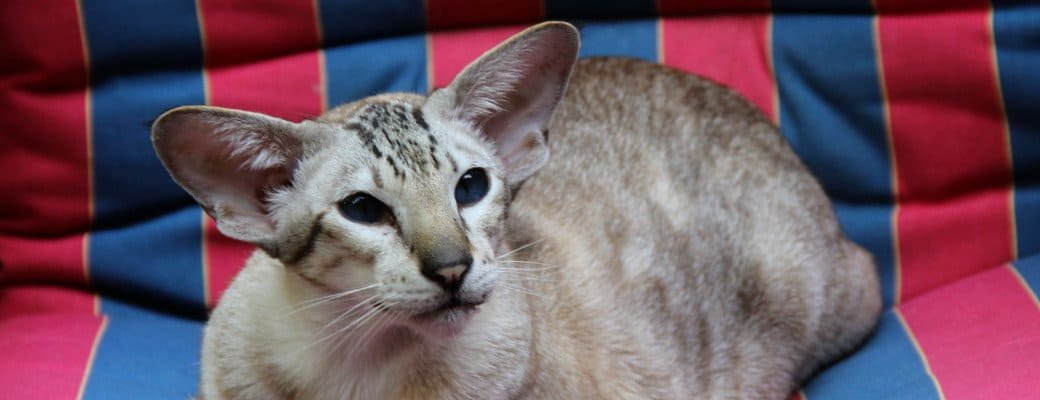Siamese cats are known for their elegance, intelligence, and endless chatter — but like all pedigree breeds, they do come with some health quirks. If you’re lucky enough to share your home with one of these striking felines, it’s wise to understand the health conditions they may be prone to and what you can do to keep them happy, fit, and purring well into old age.
As a breeder and GCCF judge, I’ve handled and raised more Siamese cats than I can count. I’ve seen the breed at its healthiest and, sadly, in some cases, when things have gone wrong due to poor breeding or neglect. The good news is that many of the most common Siamese health problems can be prevented or managed with responsible care, early detection, and a bit of knowledge.
Let’s look at the key areas to watch for — and how to give your Siamese cat the best possible start.


Are Siamese Cats Prone to Illness?
They’re generally a robust, long-lived breed. Many Siamese cats live well into their mid-to-late teens, and I’ve known some that happily reached 20. But, like any pure breed, there are certain inherited conditions that appear more often in Siamese lines, especially where health testing hasn’t been prioritised.
These conditions aren’t guaranteed, but it’s worth knowing the signs and how to avoid them through good breeding choices and preventative care.
Common Siamese Health Conditions
While most Siamese cats are healthy, active, and long-lived, it’s worth being aware of a few conditions that crop up more often in this breed. These aren’t guarantees, but they are possibilities — especially if a cat comes from lines where health testing hasn’t been prioritised. The good news is that many of these issues can be managed or prevented with early awareness, good breeding, and proper care.
1. Respiratory Problems
Siamese cats, especially those with extreme head types (sometimes referred to as "modern type"), can be prone to brachycephalic-like respiratory issues. While they’re not technically brachycephalic like Persians or British Shorthairs, a very narrow nasal passage can cause snorting, snuffling, and breathing difficulties.
What to watch for:
- Noisy breathing
- Persistent sneezing
- Difficulty tolerating heat or exercise
Prevention:
Choose kittens from breeders who prioritise balanced head shape and good nostril width. Avoid cats with pinched faces or overly extreme profiles.
2. Dental Disease
Siamese cats have a higher tendency than average to develop periodontal (gum) disease. This can lead to discomfort, bad breath, and eventually tooth loss if untreated.
Signs to look out for:
- Bad breath
- Red, inflamed gums
- Dropping food or chewing on one side
Prevention:
Daily tooth brushing is ideal (start young!), or use dental gels and dental-friendly diets. Regular vet checks will also spot early issues before they become serious.


3. Progressive Retinal Atrophy (PRA)
This inherited eye condition leads to gradual vision loss and, eventually, blindness. While not common in the UK Siamese population, it has appeared in some imported lines or outcrosses.
Signs:
Bumping into objects in low light
Dilated pupils
Reluctance to move in the dark
Prevention:
Responsible breeders screen for PRA, especially if they use imported cats. Ask for test results if you're buying a kitten.
4. Heart Conditions
A condition called hypertrophic cardiomyopathy (HCM) has been seen in Siamese cats, although it's more common in breeds like Maine Coons and Ragdolls. HCM causes the heart walls to thicken, which can lead to heart failure over time.
Signs:
Lethargy
Difficulty breathing
Fainting or weakness
Prevention:
No genetic test exists for HCM in Siamese cats at the moment, but breeding from lines with no known heart issues and monitoring heart health via scans in breeding animals helps reduce risk.
5. Gastrointestinal Sensitivity
Some Siamese cats have sensitive stomachs or are prone to vomiting more than the average moggy. Often, this is more behavioural (fast eating, anxiety) than pathological, but it’s worth keeping an eye on.
Watch for:
Frequent vomiting
Loose stools
Refusal to eat
Prevention:
Feed high-quality food, avoid sudden diet changes, and use slow feeders for greedy cats. If vomiting is persistent or severe, consult a vet — it could signal something more serious.


Genetic Testing and Choosing a Breeder
The single most important thing you can do to avoid many health issues is choose a responsible breeder.
Look for someone who:
Breeds to GCCF (or TICA/FIFe) standards
Health-tests their breeding cats for known risks
Avoids inbreeding and prioritises type and health
Socialises kittens and raises them in a clean, stimulating home environment
I always tell new kitten owners: don’t just fall for a cute photo online. Ask questions. Visit if you can. A reputable breeder won’t be offended — they’ll welcome your interest.
Routine Health Care: The Basics
Even healthy Siamese cats need regular maintenance to stay in top condition.
Annual vet check-ups should include:
Vaccinations
Weight monitoring
Dental checks
Early signs of age-related issues
Ongoing care:
Daily or weekly tooth brushing
Monthly flea and worm treatment
Play and mental enrichment to avoid stress-related illnesses
Mental Health Is Physical Health
One thing I’ve learned over the years: Siamese cats are emotionally sensitive. Stress, boredom, or changes in routine can absolutely affect their physical wellbeing.
Signs of stress include:
Over-grooming
Hiding or aggression
Toileting outside the litter tray
Don’t dismiss these as behavioural “quirks”. Sometimes, they’re the first sign something’s off physically — or they’re a cry for help from a cat who’s feeling overwhelmed or under-stimulated.
Keep their environment consistent, enrich their days with play and human interaction, and always rule out pain before blaming behaviour.
Final Thoughts: Siamese Cat Health Issues
Siamese cats aren’t fragile, but they’re not bulletproof either. Like any pedigree cat, they come with some breed-specific considerations — most of which are manageable or avoidable with good care.
Choose a healthy line, feed well, keep up with dental care, and don’t ignore the emotional side of their wellbeing. These cats are clever, loving, and full of character — and when looked after properly, they’ll reward you with years of affectionate, entertaining companionship.
As I always say: they’re not just cats — they’re characters.
faq
Yes, especially if the children are gentle and respectful. They don’t tolerate rough handling.
No. They like being around you but aren’t needy. They’re independent.
They enjoy short bursts of play but are generally laid-back. So not very active at all, once they are out of 'kitten-hood' they are rather relaxed about everything,.
Life expectancy of a British Shorthair cat is generally excellent with reported lifespan of 12-15 years.
Absolutely. Their quiet nature makes them ideal for indoor life.
No, British Shorthairs are fairly quite.
British cats do love people but prefer to keep their feet firmly on the ground and so prefer not to be picked up.
